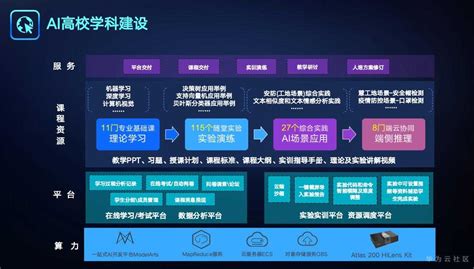人工智能教育平台注册
Title: Revolutionizing Education through Artificial Intelligence Platforms

In recent years, the integration of artificial intelligence (AI) in education has transformed traditional learning methods, offering personalized experiences, enhanced efficiency, and innovative teaching approaches. Let's delve into the various aspects of AI in education platforms and how they are revolutionizing the learning landscape.
1. Personalized Learning:
AIpowered education platforms analyze students' learning patterns, preferences, and strengths to tailor learning experiences accordingly. By adapting content, pacing, and difficulty levels to individual needs, these platforms optimize learning outcomes and engagement.
2. Adaptive Assessment:
Traditional assessments often provide a onesizefitsall approach, failing to accurately gauge students' understanding and progress. AIdriven assessment tools dynamically adjust questions based on students' responses, offering targeted feedback and identifying areas needing improvement more effectively.
3. Intelligent Tutoring Systems (ITS):
ITS leverage AI algorithms to simulate human tutoring interactions, providing immediate feedback, guidance, and explanations. These systems offer personalized support, adapting to students' learning styles and pacing while continuously monitoring progress.
4. Datadriven Insights:
AI platforms generate vast amounts of data on students' learning behaviors, performance trends, and areas of difficulty. Educators can leverage this data to gain valuable insights into students' progress, identify effective teaching strategies, and intervene promptly to address challenges.
5. Virtual Classrooms and Simulations:
AIenabled virtual classrooms offer immersive learning experiences, allowing students to interact with digital content, simulations, and virtual tutors. These environments facilitate experiential learning, particularly in subjects like science, engineering, and healthcare, where handson practice is crucial.
6. Language Learning and Translation:
AIpowered language learning platforms employ natural language processing (NLP) algorithms to facilitate language acquisition through interactive exercises, realtime feedback, and language translation services. These tools enhance language proficiency and cultural understanding, transcending geographical barriers.
7. Accessibility and Inclusivity:
AI in education promotes accessibility and inclusivity by providing adaptive learning resources for students with diverse learning needs. Speech recognition, texttospeech, and other assistive technologies empower students with disabilities to participate fully in educational activities.
8. Lifelong Learning and Skill Development:
AI platforms support lifelong learning initiatives by offering flexible, selfpaced courses tailored to professionals' evolving needs. Continuous skill assessments and personalized recommendations enable individuals to acquire new competencies and stay competitive in dynamic industries.
Guiding Principles for AI in Education:
While AI holds immense potential to revolutionize education, it's essential to uphold ethical principles and ensure responsible deployment. Key considerations include:
Privacy and Data Security:
Safeguarding student data and privacy rights.
Transparency and Accountability:
Providing clear explanations of AI algorithms and decisions.
Equity and Fairness:
Addressing biases in AI models and ensuring equal access to educational opportunities.
HumanCentric Design:
Fostering collaboration between AI systems and human educators to enhance teaching effectiveness and student outcomes.Conclusion:
Artificial intelligence has emerged as a powerful tool in reshaping education, offering personalized learning experiences, adaptive assessments, and innovative teaching approaches. By harnessing the potential of AI platforms, educators can foster inclusive, engaging, and effective learning environments that prepare students for success in the digital age. Embracing AI in education requires a commitment to ethical principles, ensuring that technology serves as a catalyst for positive educational transformation.
This HTML document provides a comprehensive overview of how artificial intelligence is revolutionizing education, covering various aspects such as personalized learning, adaptive assessment, intelligent tutoring systems, datadriven insights, virtual classrooms, language learning, accessibility, inclusivity, lifelong learning, and guiding principles for responsible AI deployment.











